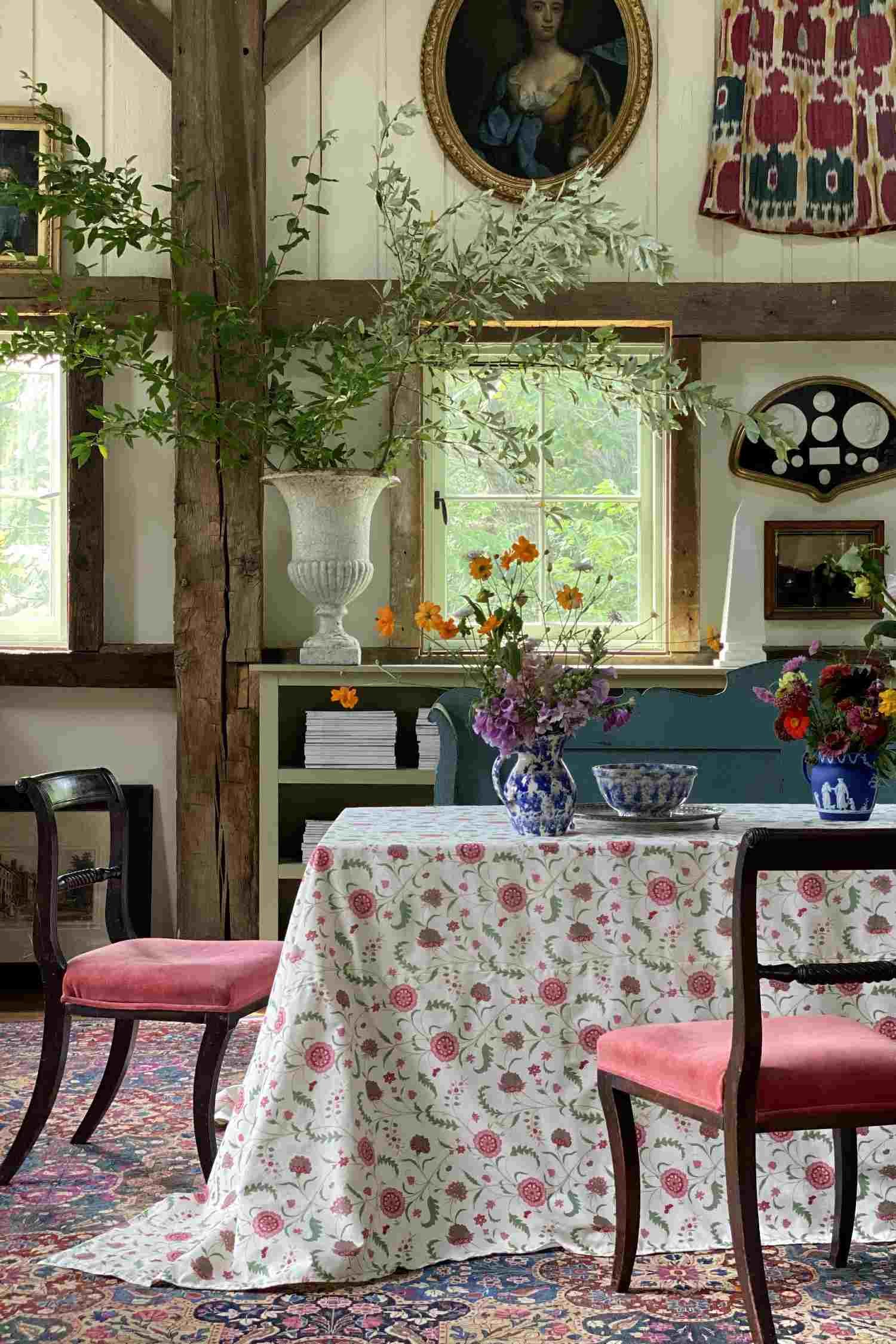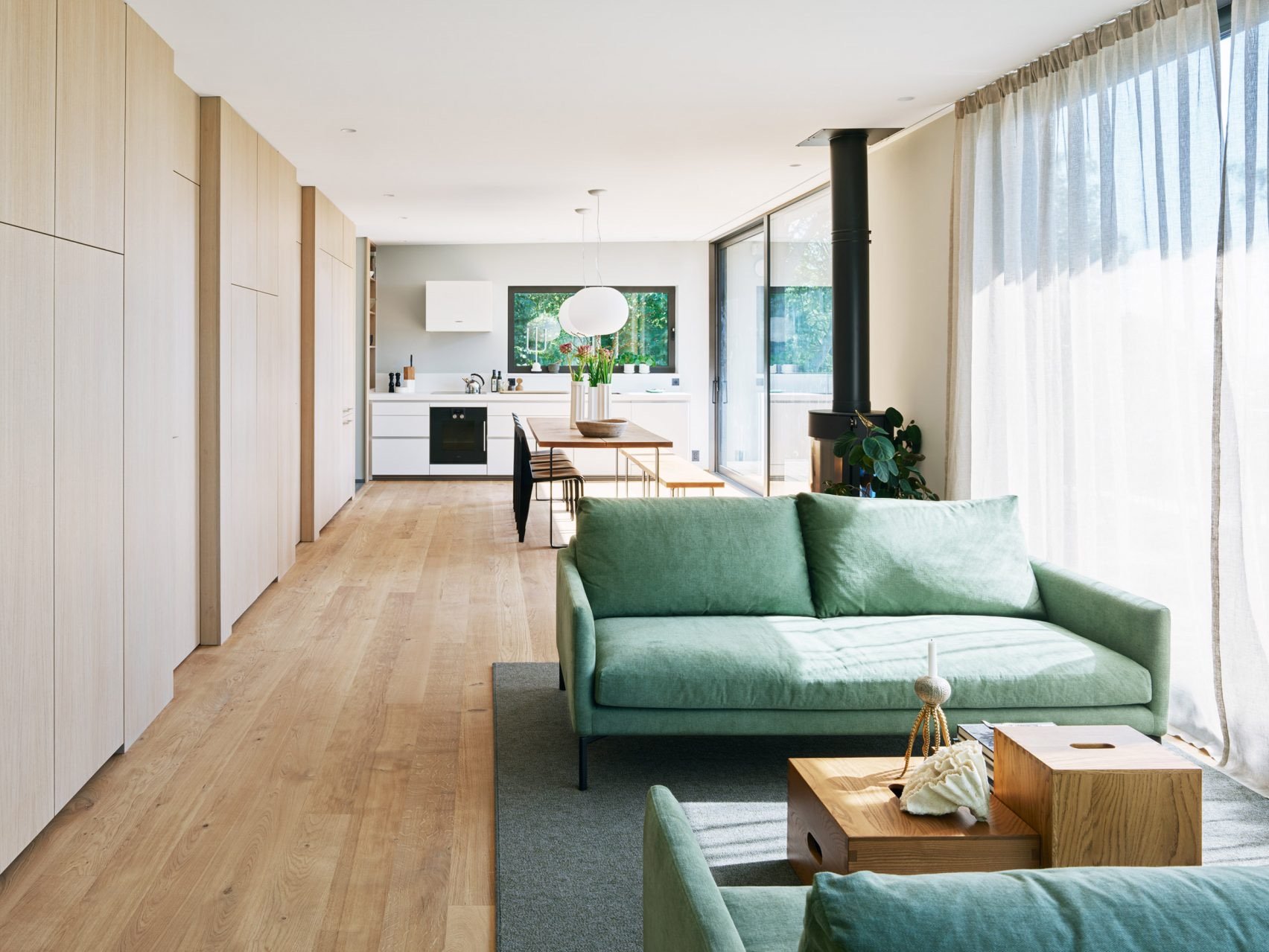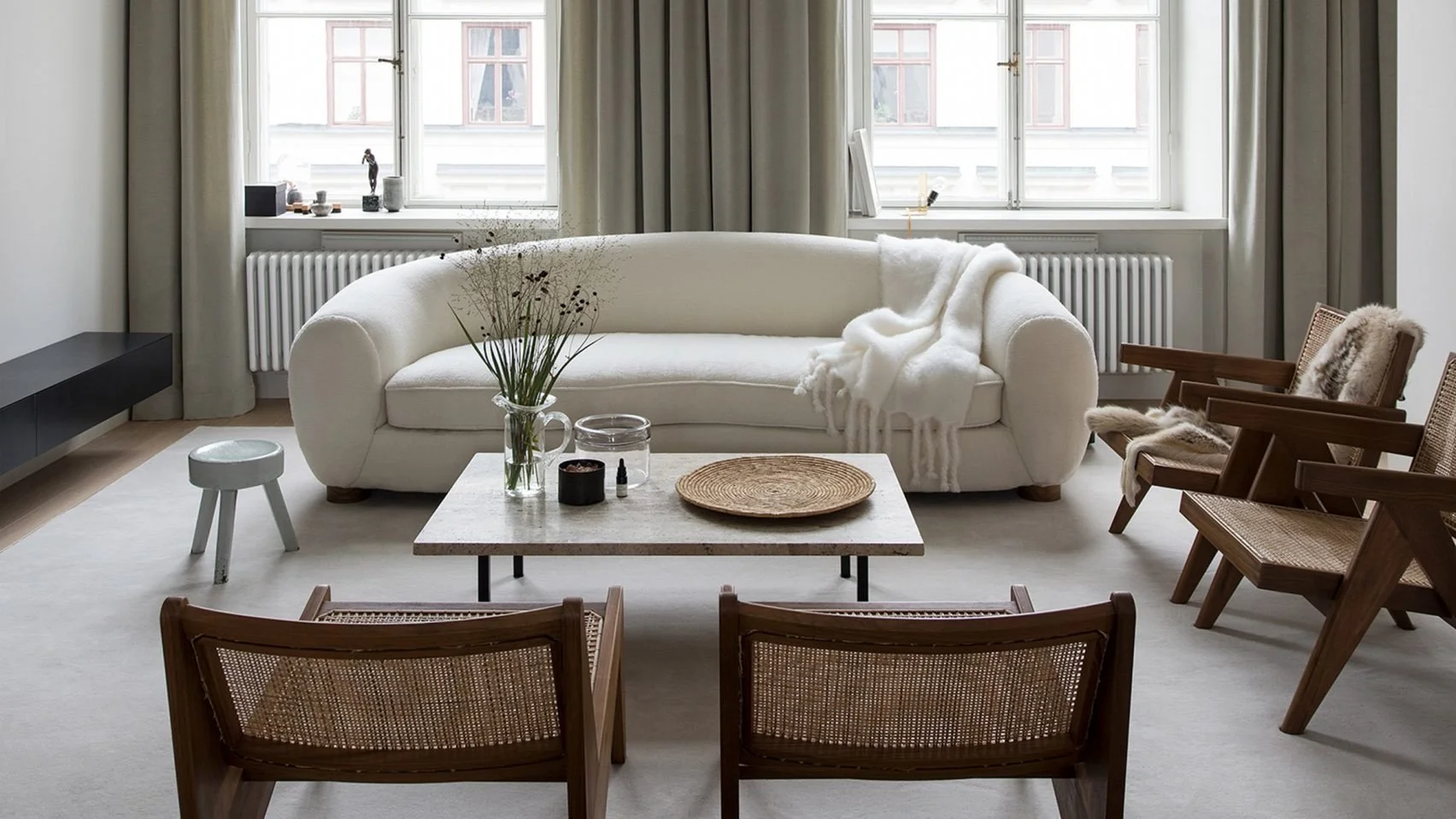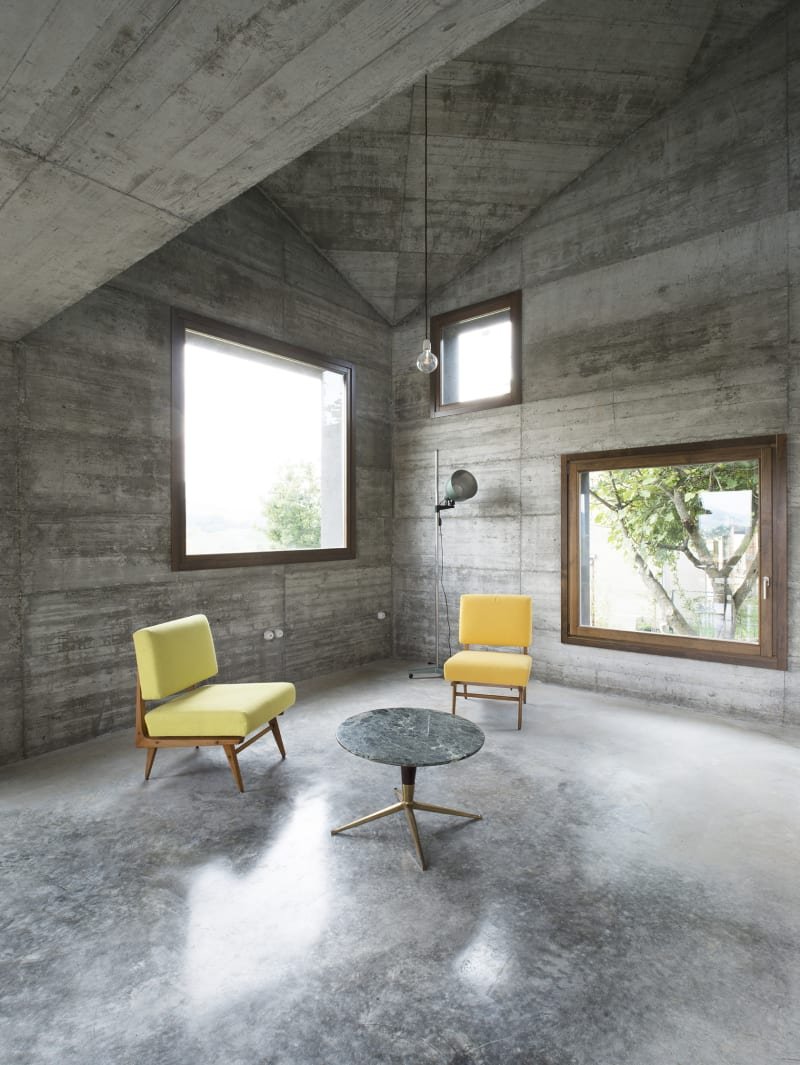The luxury homeownership content paradigm
A Gen-Z pipeline into theoretically attainable homeownership
Boy, do I love some mid-century modern furniture, a gallery wall and a freestanding bathtub. But don’t be fooled—I’m aware these aesthetic proclivities of mine that shape what I deem to be “good taste” might simply be a delicately curated Pinterest algorithm at work. One that shows me an infinite stream of almost identical images that often make me question their own existence. Either way, whether you prefer a cottage core, brutalist or Scandinavian-minimalist interior, it might just have more to do with a raging affordability crisis in housing that we prefer to wash down by doom-scrolling various forms of luxury real-estate content.
In the face of my scepticism in the Pinterest feed, I’d share hyperlinks to my favourite properties in a group chat with some girlfriends as “inspo” in the event that we’d rent a lofty New York City apartment together someday (back when monthly rent payments were a quirky footnote of adulthood). One of whom recently shared a video with me on TikTok that brought with it a pressing question concerning my future property ownership. It read, “POV: You are getting a free house…which interior are you choosing?” The video continued, scrolling through different mansions numbered one through three with varying luxurious aesthetics and followed each image of the structure's almost CGI-esque exterior with editorial money shots of their interior.
This friend, based on our mutual familiarity with each other's tastes, figured she could guess which glorious property I would hypothetically want (in another dimension I assume). To be fair, she could—we’d been training for this. “One”, she wrote in the following message. Impressed by her acquaintance with my not-so-unique palate, I took a shot at guessing hers as well, which I correctly identified as being the most opulent of the bunch. In her defence, they all probably had a steep listing price; a fact we were willing to overlook at this stage of our lives, not particularly in a rush to buy homes and make babies. But we granted ourselves this allowance of delusion, you know, as a treat.
This dreamy genre of “pick your reality” video spamming direct messages everywhere is not unique. In fact, I’ve seen fistfuls of virtually identical videos varying only in images cursorily hijacked from Pinterest yet always accompanied by some lo-fi beats to match the vibes. The comment section is always plentiful in users virtually shouting their preferences. One user I notice confesses, “I want to be successful” to no one in particular. Another chimes in “1 but I’m not fussy I’d take any of them”; a sentiment with which I relate and have the urge to promptly click the heart next to it in solidarity. The video has looped several times at this point and I fear I’ve missed a smaller, more mediocre property that might someday be within my presently non-existent budget. Alas, it never comes and I begin to suspect the implicit golden rule of this genre of content is that each pictured monstrosity must not be demonstrative of an unpleasant housing crisis—but a pipedream into theoretically attainable wealth.
These videos attract millions of views and hearts—a majority coming from TikTok’s user base of teens eager to escape a mundane suburban reality or perhaps a life struggling to find decent housing at all. It becomes clear scrolling endlessly through the #whichwouldyoupick hashtag that the unnamed subsect of “imagine you lived here!” content allows for a brief escape from an impermeable housing market into lavish lives of excess square-footage and expensive coffee table books.
Screenshot from Pinterest
This near-fictional imagery of untouchably opulent homeownership seeps into a collective unconscious, qualifying as what philosopher and filmmaker Guy Debord defines as a “spectacle” in his text ‘The Society of the Spectacle’¹ which, he describes as “a separate pseudoworld that can only be looked at”. He goes on: “The spectacle that falsifies reality is nevertheless a real product of that reality (…) real life is materially invaded by the contemplation of the spectacle, and ends up absorbing it and aligning itself with it”. Although Debord’s spectacle is often a hyperbolic representation of reality, it fabricates our legitimate expectations of reality and in effect, our most outrageous desires. This idea of the spectacle, he continues, is often something that is weaponised against the working class, manufacturing their perpetual yearning for more that will forever be out of reach. It [Debord says] “is nothing more than an image of happy harmony surrounded by desolation and horror, at the calm centre of misery.”
I, personally, am thoroughly guilty of escapism into an idyllic real estate fantasyland. My offences include but are not limited to: casually browsing real-estate websites like Zillow in an obscene price bracket and being fortunate enough to elide reality by moving back home after college in hopes of saving up for the wildly uneconomical venture of a Master's degree. In a piece in The Times, culture columnist Taylor Lorenz probes specifically into the modern wonder of ‘Zillow Surfing’². She quickly lays the groundwork asserting that this popular soothing pastime “...is not necessarily [in search of] a purchase, but an alternate life.” At my most indictable moment, I was living in Amsterdam paying roughly €800 a month for a single room in a two-bedroom apartment and working an internship that paid me roughly half of that. In the time I wasn’t galavanting around the city on my (also rented) bike or working well below minimum wage, I could have easily been caught red-handed browsing Dutch Zillow-equivalents searching for the perfect canal-facing property to envision a life I would much prefer; unleashed and rent-free.
In major cities across Canada for example, renters and buyers find common ground in the horror of the soaring market. Toronto, where I find myself on the map currently, is expecting an 11% increase³ in rent in 2022 despite the silent recession induced by the pandemic. This trend is not exclusively bound to cities as house prices in the suburban surrounding areas average at least $1 million⁴ (roughly 738.780 €) and often sell for hundreds of thousands over their asking price. In 2021, Sotheby’s International Realty conducted a study on the next generation of Canadian homeowners between the ages of 18-28 and found that of the Torontonian participants, 84% feared they wouldn’t be able to afford a property in their neighbourhood of choice and 52% had fully given up on their dream of homeownership. These younger generations (sans trust funds) are of course those most vulnerable—accumulating heaps of student debt, living paycheck to paycheck and as many like to think, slurping up endless amounts of oat milk lattés, ultimately rendering it near impossible to gather enough for a downpayment on a modest property let alone one with crown-moulding and indoor-outdoor space.
It wasn’t long ago that my existential dread surrounding the uncertainty of which overpriced roof I would be doing my skincare routine under for the foreseeable future was sedated by Zillow surfing and its contemporary TikTok equivalents. Now, I find it has only echoed my fears as I scroll past yet another shabby-looking million-something-dollar home that my ego wouldn’t be caught dead living in. But to some, this stream of content appears to numb the contemporary ailment of housing anxiety. Whether or not our consumption of it is harmless daydreaming or a culturally-imposed delusion of somewhat voluntary naiveté pushing us further down a rabbithole of delirium beyond repair, the content persists. In the meantime, I continue to scroll as we all must, feasting on aesthetic-porn for a drop of relief. Enjoy the serotonin, friends.
Bibliography
¹ Debord, G. (1992). Society of the spectacle. Rebel Press, London.
² Lorenz, T. (2020, November 19). Zillow Surfing Is the Escape We All Need Right Now. The New York Times.
³ O'Neil, L. (2021, December 13). Toronto Rent Prices are Expected to Climb a Whopping 11% Next Year. blogTO.
⁴ Hughes, S. (2022, February 3). Toronto home prices climb in January, following record-breaking sales in 2021. Financial Post.
Sotheby's International Realty Canada. (2021, December 8). The Next Generation in Canadian Housing: Generation Z Trends Report. Sotheby's International Realty Canada.





